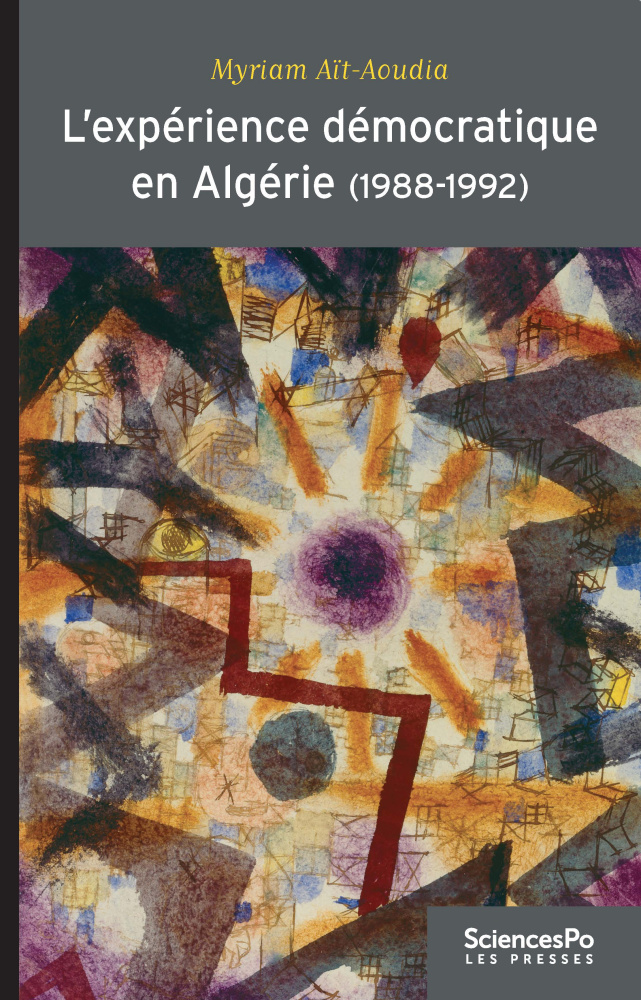L'expérience démocratique en Algérie (1988-1992)
Apprentissages politiques et changement de régime
First Edition
In 1989 in Algeria, a pluralist democracy replaced an authoritarian system. How this democratic experiment was organized? And how has it failed three years later? A key book to understand the singular position of Algeria and its "stability" during the "Arab revolutions". Read More
More than twenty years before the 'Arab Spring', Algeria's single-party regime suddenly collapsed, giving way to a multi-party system. How did the region’s first democratic experiment come about? And how did it fail, a mere three years later?
This work outlines the trajectory of that democratic process, working with a corpus of unparalleled size and scope: interviews with the leaders of the major political parties (FLN, FIS, RCD, FFS), ministers and generals, as well as local and departmental civil servants; numerous original archives (from the FIS and the Ministry of the Interior in particular), press documentation and legal texts. It describes how new political rules were implemented and how qualified actors were selected to participate in the electoral contest, as well as the various attempts to establish a pluralist political system, characterised by an oscillation between trust and distrust.
As an experiment in democratic change, where all the conditions necessary for such a transition were tested, the Algerian example was not the linear product of a regime crisis: on the contrary, Algerian democracy was the outcome of an erratic and unpredictable process, each phase of which produced new configurations of actors who were all caught up in a larger dynamic mastered by no one.
This book provides crucial insight into Algeria’s unique position, as well as its 'stability’ during the ‘Arab Spring’. It likewise offers a more informed perspective on the current events unfolding in the Arab world.
Specifications
- Publisher
- Presses de Sciences Po
- Author
- Myriam Aït-Aoudia,
- Collection
- Académique
- Language
- French
- Tags
- , , , , Democracy, Political parties
- Publisher Category
- > International > Maghreb
- Publisher Category
- > Political Science > Political Parties
- Publisher Category
- > Fields > World and societies
- Publisher Category
- > International
- Publisher Category
- > International field
- Publisher Category
- > Politics
- BISAC Subject Heading
- POL000000 POLITICAL SCIENCE
- BIC subject category (UK)
- H Humanities > J Society & social sciences
- Onix Audience Codes
- 06 Professional and scholarly
- CLIL (Version 2013-2019)
- 3283 SCIENCES POLITIQUES
- Credit
- Presses de Sciences Po
- Title First Published
- 10 October 2015
- Subject Scheme Identifier Code
- Thema subject category: Politics and government
- Type of Work
- Monograph
- Includes
- Index, Bibliography
Paperback
- Publication Date
- 10 October 2015
- ISBN-13
- 978-2-7246-1258-5
- Product Content
- Text (eye-readable)
- Extent
- Main content page count : 350
- Code
- 9782724612585
- Dimensions
- 13.8 x 21 x 1.2 cm
- Weight
- 412 grams
- List Price
- 24.00 €
- ONIX XML
- Version 2.1, Version 3
ePub
- Publication Date
- 20 November 2015
- ISBN-13
- 978-2-7246-8959-4
- Product Content
- Text (eye-readable)
- Extent
- Main content page count : 352
- Code
- 9782724689594
- Technical Protection ebook
- Adobe DRM
- List Price
- 17.99 €
- ONIX XML
- Version 2.1, Version 3
Google Book Preview
Contents
INTRODUCTION
Première expérience démocratique dans le monde arabe
Une perspective configurationnelle du changement de régime
L'apprentissage des règles du jeu démocratique
I - GENÈSE DU PLURALISME PARTISAN (OCTOBRE 1988-SEPTEMBRE 1989)
Chapitre 1 / L'ÉMERGENCE D'UNE CRISE POLITIQUE
Répression et disqualification des émeutiers
Mobilisations multisectorielles et politisation des émeutes
Chapitre 2 / LA LIBÉRALISATION CONFUSE DU PARTI UNIQUE
Une volonté affirmée de libéraliser le régime
Tâtonnements, confusion et conflits dans les coulisses
Chapitre 3 / LES PARADOXES DE LA NOUVELLE CONSTITUTION
Euphémisation publique d'un changement radical de la lettre constitutionnelle
Appréhensions et résistances des membres du FLN
Le changement constitutionnel comme coup politique
Chapitre 4 / LA RECONNAISSANCE CONFUSE DU PLURALISME PARTISAN
La Constitution comme support de la création du FIS
La Constitution comme fondement de la dépolitisation inédite de l'armée
L’encadrement juridique du pluralisme partisan
II - CONSTRUCTION PRÉÉLECTORALE DU PLURALISME PARTISAN
Chapitre 5 / LA CONVERSION AMBIGUË DU FLN AU PLURALISME PARTISAN
La dimension exogène de la conversion
La dimension endogène de la conversion
Chapitre 6 / LA CONSTRUCTION DU FIS
La structuration du FIS
Le militantisme caritatif et religieux
III - APPRENTISSAGES DU PLURALISME ÉLECTORAL
Chapitre 7 / LA FABRICATION DE LA PREMIÈRE ÉLECTION PLURIPARTISANE
Les dilemmes des nouveaux partis face à la participation à la première élection pluraliste
Remplir des conditions légales lourdes
La gestion administrative du pluralisme électoral
L’apprentissage de la campagne électorale
Chapitre 8 / DE LA CONFIANCE À LA DÉFIANCE
Les conflits sur la gestion locale des élus FIS
Conflits autour du droit électoral
Du retour de la confiance à la défiance absolue
CONCLUSION
CHRONOLOGIE
SOURCES ET MÉTHODOLOGIE

